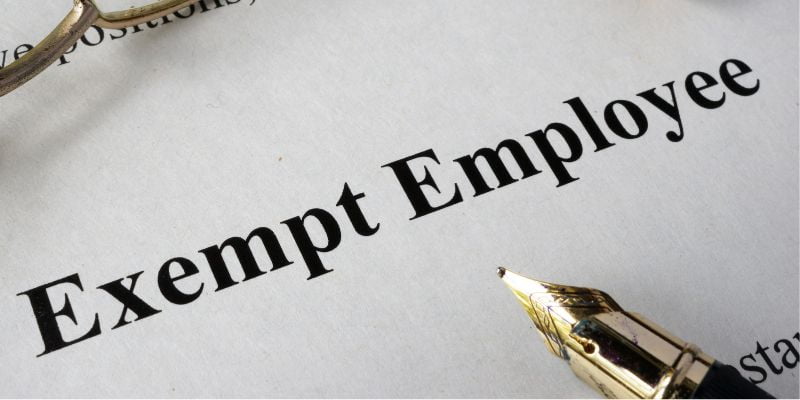Workers’ compensation insurance can be an invaluable economic lifeline for anyone who has suffered an injury at work. State law requires almost every employer to have this insurance, even if they have only a single employee. Most workers are covered; however, there are some individuals who are exempt from workers’ compensation coverage. A California workers’ compensation lawyer can help determine your eligibility to file a claim.
Eligibility for Workers’ Compensation Benefits
State law requires employers to cover almost all employees with their workers’ compensation insurance. This includes most part-time and full-time employees as well as many seasonal workers. Generally, the only workers exempt from workers’ compensation insurance coverage in the state are domestic care workers who only work limited hours, independent contractors, and some part-time or seasonal workers.
Your employer is required to disclose your eligibility status for workers’ compensation benefits if you are hurt while working, and if you do report an injury, they are required to facilitate your claim for benefits in good faith. Beyond your employment status, you must also determine whether an injury or medical condition itself qualifies for coverage. California law requires workers’ compensation benefits to apply to:
- Acute traumatic injuries from accidents, such as broken bones, crushing injuries, severe burns, and more. As long as the injury happened while you were performing your job duties, you likely qualify to file a claim for benefits. Falls, heavy machinery malfunctions, equipment failures, vehicle accidents, and various other unpredictable events can potentially cause life-changing workplace injuries.
- Acquired medical conditions, such as repetitive stress injuries, degenerative conditions, soft tissue damage, and acquired illnesses like cancer. You will need to prove your condition directly resulted from performing your work duties. It is also possible to recover compensation if your work made a preexisting condition worse, but these cases are inherently complex.
- Mental health conditions. The state requires workers’ compensation to apply to mental health treatment for job-related conditions. If you work in a high-stress job and experience mental health problems over time, you have the right to file a claim for benefits.
- Fatal injuries at work. If a family member died on the job, their employer’s insurance policy may include death benefits payable to their beneficiaries. It’s imperative to speak with a California workers’ compensation lawyer if you have lost a loved one from any kind of fatal accident at their workplace.
It is important to remember that the location where your injury occurred does not matter as much as what you were doing when the injury happened. As long as you were performing your job duties when you were hurt, you likely qualify to file a claim.
However, if you were working under the influence of drugs or alcohol, engaged in horseplay at work, or intentionally disregarded workplace safety regulations, this issue may disqualify you from filing a claim.
You could also have grounds for further legal recourse depending on how your injury occurred, especially if any party outside of your work directly caused your injury. Ultimately, every injured worker could face various challenges and opportunities when it comes to recovering from a workplace injury, and it is vital to seek legal counsel you can trust so you can file your claim for benefits with confidence.
FAQs
Q: Is Workers’ Compensation Insurance Mandatory?
A: California law requires almost every employer with at least one employee to have workers’ compensation insurance. Most workers qualify to file claims if they are hurt while performing their job duties. However, there are some workers who do not qualify for coverage. Always verify your employment classification to ensure you qualify, and if you have questions about your eligibility, you should speak with a workers’ compensation lawyer.
Q: How Long Do I Have to File a Workers’ Compensation Claim?
A: You face two important time limits when it comes to filing your workers’ compensation claim. First, you must report the injury to your employer within 30 days of the injury. Second, you must meet the statute of limitations for filing your claim with your employer’s insurance carrier. This statute of limitations is one year from the date your workplace injury occurred. You will have the greatest chance of success with your claim if you file it as soon as possible.
Q: What Happens if My Employer Misclassifies Me to Avoid Covering My Injury?
A: Unfortunately, some employers have intentionally misclassified their employees to avoid paying for their workers’ compensation benefits. State law requires employers to accurately categorize all employees and cover them appropriately under their workers’ compensation insurance. If you believe your employer has intentionally misclassified you, speak with a California workers’ compensation lawyer to determine your potential remedies.
Q: Can I Sue My Employer for an Injury at Work?
A: You can sue your employer for a work-related injury only under certain conditions in California. Workers’ compensation insurance generally protects covered employers from civil liability for their injured workers’ damages. You can file a personal injury suit against your employer only if they do not have the required insurance or if your injury occurred because they ordered you to complete a task outside of your usual responsibilities that had virtual certainty of causing an injury.
Q: What Compensation Can I Claim in a Personal Injury Suit?
A: If you have grounds to file a personal injury claim against your employer or any other party liable for your injury at work, you can seek compensation for any damages that workers’ compensation insurance will not cover. If you are unable to file a workers’ compensation claim, you can potentially recover compensation for your medical expenses, lost income, and your pain and suffering.
Call Our Experienced Workers’ Compensation Lawyer For Legal Guidance
Diefer Law Group has years of experience helping clients with their work injury claims, and our goal is maximum client recovery in every case we accept. If you have questions about your eligibility to file a workers’ compensation claim or you believe your employer has not treated you fairly, we can help. Contact us today to schedule a free consultation with a California workers’ compensation lawyer.








